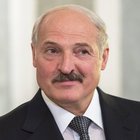The Governor started his report by presenting master plans for the region’s three backbone cities and mentioned renovation of restricted-access territories [ZATOs] to secure the President’s support for the region in its effort to deliver on these important undertakings.
With due regard to the Presidential instructions, the list of backbone cities includes three metropolitan areas: the Murmansk metropolitan area with Murmansk and Severomorsk, which is home to the Northern Fleet, the Kirovsk-Apatity metropolitan area, and the Monchegorsk metropolitan area. Over 70 percent of the region’s population is concentrated in these cities. The region listened to its residents and factored their views into these master plans. There were also thorough opinion surveys and strategic sessions.
The Governor noted that developing the Northern Sea Route and ensuring security in the Arctic are the main objectives for the Murmansk metropolitan area. As far as investment is concerned, the plan focuses on dealing with sea-related matters, the unfreezing Kola Bay, and ensuring unhindered access to the World Ocean. This also includes the development of the Northern Sea Route, building up port capacity, developing ship maintenance and repair capabilities and fisheries, and also everything connected to liquefied natural gas.
In order to retain the workforce the region needs to carry out these projects, it has several important topics on its agenda dealing with housing, urban development, education, research and healthcare.
The Governor also mentioned several projects, including new Rosatom projects to create a dedicated shipyard for building floating nuclear stations. The region also plans to complete the project to build a new port in Lavna for coal shipments before the year is out, as well as to work with the Federal Agency for Fishery on upgrading the Murmansk fishing port after it was taken back into state ownership. There is also a project to build a port in cooperation with Belarus. Answering the President’s question about the Belarus project, Andrei Chibis reported that the region has allocated land plots and is now working with the Government on clearances and expanding railway capacity. He reassured the President that he would seek his support if any challenges arise down the road. Vladimir Putin noted that there was a lot of red tape in both Russia and Belarus and promised to raise these matters with President of Belarus Alexander Lukashenko, if necessary.
As for the Murmansk Transport Hub, the first stage of its construction with a throughput capacity of 45 million tonnes has been completed, and the project pipeline provides for an added capacity of 110 million tonnes. Andrei Chibis emphasised that improving accessibility by rail is a strategic matter, but the bottlenecks were located outside of the Murmansk Region. The region is working with Russian Railways and the Government, and there have been intense debates on this matter, but this task is crucial for the development of the Northern Sea Route.
Andrei Chibis also raised the issue of relocating coal transshipment capacity from the centre of Murmansk to the new coal port of Lavna on the western shore of Kola Bay. He explained that replacing coal in the port of Murmansk with other goods requires a presidential instruction and assistance from the federal Government.
The Governor also described about how the city of Murmansk has changed in the past five years. Housing construction has finally gained traction for the first time since the Soviet times. According to him, this is due to the growing demand, as incomes are growing; people are optimistic about the future and want to invest their money in the North, where they are planning to live and work, not in other regions. Sber and NOVATEK have sponsored the Muse children’s digital arts centre project; an application for a world-class university campus has been prepared, and a concessionary agreement for a water park has been signed.
The head of the region also asked the President for support in modernising the city’s healthcare infrastructure; developing several sports facilities (an ice arena for game sports and a football arena); and building a large modern college and a university campus, which is to become one of the city-forming facilities for young people in Murmansk. He also asked for help with getting approval of federal funding for the project, to build a decent Arctic university that will train specialists for all the projects of national importance.
With regard to the Kirovsk-Apatity agglomeration, the President and the Governor discussed joint plans with PhosAgro to develop apatite concentrate, to develop a ski resort in Kirovsk and to create a federal sports and training centre for national skiing and alpine skiing teams there. The Governor pointed out that Apatity is home to the Kola Science Centre of the Russian Academy of Sciences, and it would make sense to concentrate Arctic research there. He also mentioned Polyarnye Zori, Rosatom’s city where a new nuclear power plant will be built to supply energy to all projects in the region, and Monchegorsk, the city of metal smelters where a new industrial facility will be created. Lithium processing and making cathode active material for lithium-ion batteries is a new industry in Russia, but the raw materials for it are mined in the Murmansk Region.
As the Governor reported, funding sources have been identified that will provide for six rubles of private investment per one ruble allocated from the federal budget. According to preliminary estimates, government funding for all three agglomerations for ten years will not exceed 554 billion rubles.
The Governor asked the President to support the inclusion of the region’s most important projects in the new national projects when they are formed.
Concluding his report, Andrei Chibis spoke about Arctic medicine, because the cold climate calls for a different approach to managing human health. It is necessary to develop standards for Arctic medicine, which are very important, he said.
Vladimir Putin noted that standards are important in everything and that they need to align with the reality and proposed reviewing the documents that the Governor of the Murmansk Region presented.






